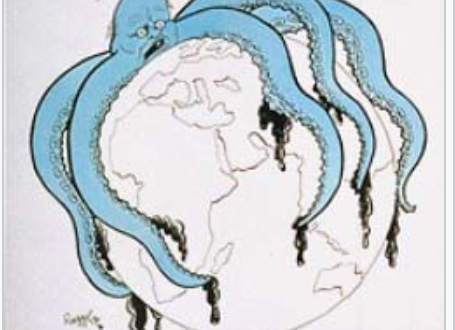I was interested to read this article – and to see some of the mixed reactions it has attracted. Nathan Lean is the author of a book called The Islamophobia Industry. Here his particular target is Richard Dawkins. Dawkins seems to treat all religions with contempt and dislike, but it is Lean’s contention that Islam holds a special place in Dawkins’ spleen, with 9/11 providing the trigger for making that religion his particular focus. This is presented as part of a wider slippery slope picture, whereby dispassionate analysis of the logical basis for theism mutates into racism and bigotry:
Conversations about the practical impossibility of God’s existence and the science-based irrationality of an afterlife slid seamlessly into xenophobia over Muslim immigration or the practice of veiling. The New Atheists became the new Islamophobes, their invectives against Muslims resembling the rowdy, uneducated ramblings of backwoods racists rather than appraisals based on intellect, rationality and reason. “Islam, more than any other religion human beings have devised, has all the makings of a thoroughgoing cult of death,” writes Harris, whose nonprofit foundation Project Reason ironically aims to “erode the influence of bigotry in our world.”
This needs some unpicking. Yes, such discussions about immigration could well be xenophobic and bigoted – sounds reasonable. But – why on earth shouldn’t one criticise the practice of veiling? That could be a preoccupation triggered by bigotry – but it needn’t be, and if we are talking about face veils many Muslims dislike those, and would say they are a purely cultural phenomenon.
Sam Harris, one of the targets of Lean’s criticisms, has asserted that “Islam remains the most retrograde and ill-behaved religion on earth”. This is perhaps an odd way for an atheist to describe a religion – which can only be defined, particularly if you are an atheist, by the way it is practised. Here is a useful and relevant article on why it’s unhelpful to describe Islam as evil. Harris could have made the same point in a different way, and perhaps gained some agreement from Muslims rather than alienating potential allies. Here is a more dispassionate analysis from Rumy Hasan, by way of a comparison.
Returning to Dawkins, these two tweets are cited towards the beginning of Lean’s article:
Dawkins went on to argue that that was only an analogy. Yes – to say a is to b is as c is to d is not, logically, to assert a link between a and c. But logic and rationality aren’t everything, even to an atheist like me. If words and sentences all had just one clear meaning I’d be out of a day job. He knows perfectly well that links are often drawn between Nazism and Islam – sometimes these are couched in legitimate, historical terms of course. In a sense I’d object less if he’d just said he thought Islam was as bad as Nazism (which I very much doubt he believes) rather than go for plausible deniability while his EDL followers cheered. He is at least equal ops when it comes to baiting.
I agree with others who think Lean’s argument would have been strengthened if he’d left the UCL iERA controversy out of this particular equation, although I think it is reasonable to discuss possible double standards over segregation in other religious contexts. (And, to be fair – for Dawkins certainly doesn’t just criticise other religions as an alibi for some kind of Islamophobic agenda, he mentions this point himself.)
Lean goes on to criticise Dawkins for linking to the site Islam Watch. As it has links to Stop the Islamization of Nations (a Geller/Spencer gig) that seems a sound objection. Just by contrast, and to help make the point, if Lean had grumbled about Dawkins linking to CEMB Forum, a site which pulls few punches in its criticisms of Islam (and which I link to myself above), I would not have been impressed.
Neither can I blame Lean for balking at Dawkins’s gush over Geert Wilders. “On the strength of ‘Fitna’ alone, I salute you as a man of courage who has the balls to stand up to a monstrous enemy,” he wrote. Although of course it’s complicated as it was, and is, important to keep on standing up for freedom of speech in the face of thugs and murderers like the man who tried to kill Lars Hedergaard. But, again, although freedom of speech includes the freedom to make Fitna, I think there are better ways to express our legitimate concerns about illiberalism, extremism and theocracy.
I don’t think Dawkins is some kind of EDL supporter, and I certainly don’t think he should be stopped from expressing his views about any religion. It’s tricky – Christians, pace Carey, are not scrutinised distrustfully in the UK, though they may be mocked, and antisemitism, although a major concern, is not generally religiously inflected. But although Islam is more under attack, and this has an impact on Muslims, that shouldn’t inhibit us from criticising any practice, group or speech – although neither should our contempt for those who want to stop us being heard inhibit us from attending to, or at least listening to, suggestions for communicating our concerns more effectively.
Hat Tip: Mohammed Amin


